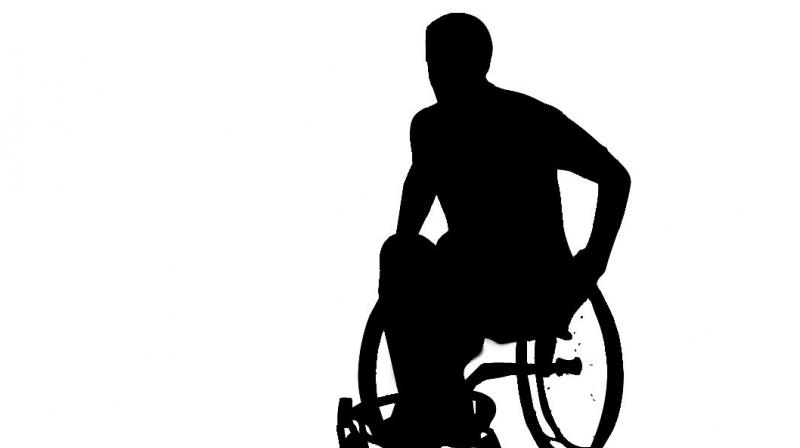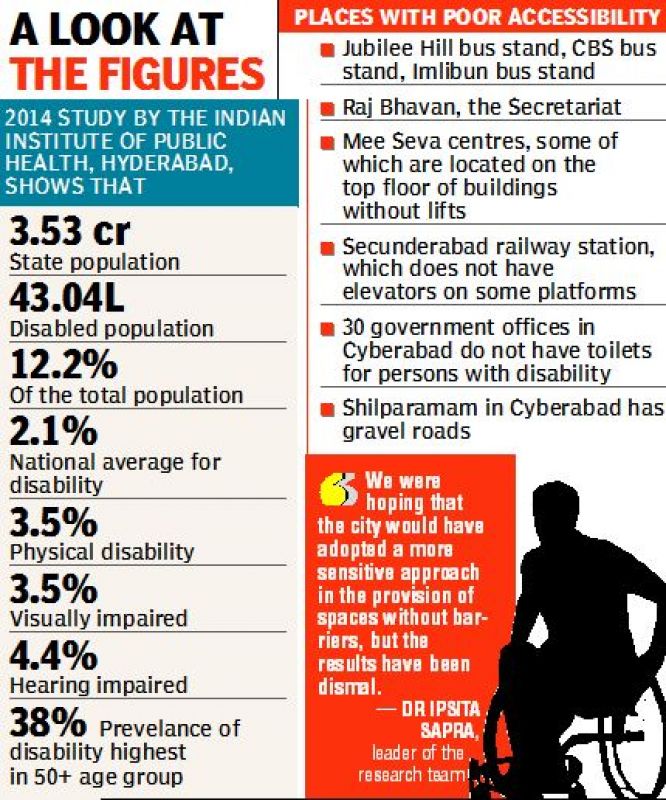Discriminated for no fault: Airlines, airports in India fail their special' fliers
77 airports have Explosive Trace Detection Systems, but still not used.

Hyderabad: For the disabled, journeys on domestic flights are tales of never-ending turbulence. Days after the de-boarding of paraathlete Madhu Bagri from a Hyderabad-bound plane, the demand for standardisation of air travel protocols for the disabled has grown stronger.
International paraathlete Suvarna Raj says that she was de-boarded from a plane in a similar manner last month. “I reached a little late than usual and was given my boarding pass. But they denied me entry because my security check would take longer,” she says. She missed her flight and was allocated a seat on a flight which departed the next day.
Experts say that such an incident would have never occurred had India been following International Protocol and using Explosive Trace Detection Systems (ETDs). These systems allow for security checks to be carried out without disabled persons having to part with their accessibility gear.

Nipun Malhotra, the founder of the Nipman Foundation, says, “I filed an RTI and found that over 77 airports in the country have ETDs, but they are not being used anywhere. Instead, we are forced to be transferred from our wheelchair or remove our prosthetic limbs in the name of security.”
Persons with disability ask why they have to undergo such humiliation when the necessary technology is available.
Their troubles do not end after the security check. “As per the procedure that is followed internationally, disabled persons are allowed to take their wheelchairs up to the aircraft door, where they are shifted to aisle chairs which can pass through the cabin. However, in India, the wheelchair goes into the baggage compartment and disabled passengers are physically lifted and carried to their seats, which is not only dangerous but also humiliating,” says Ms Suvarna Raj. Some airlines do not have aisle chairs, in which case the availability of seats in the front row becomes crucial, as was in the case of Madhu Bagri.
As per the protocol to be followed in Boeing flights, disabled persons may be seated in the front row. However, in smaller ATR flights, the emergency exit doors are located in the front, requiring mobile persons to be seated adjacent to them.
Accessibility experts say that some airlines do not have any provision for the assistance of disabled persons, as a result of which they are forced to crawl or drag themselves to their seats, which constitutes a violation of their human rights.
“The crux of the problem is that there is no penalty. Every time a disabled person with some privilege faces a problem, it is highlighted. But many unprivileged disabled persons face problems on a daily basis. Why can’t the Directorate General of Civil Aviation penalise airlines, airports instead of merely issuing warnings?” asks Mr Javed Abidi, the director of the National Centre for Pro0motion of Employment for Disabled People.
Mr Abidi has helped the CISF chalk out a detailed plan of action. He says that the airline services must incorporate a provision for the declaration of disability at the ticketing stage to avoid such hassles.

